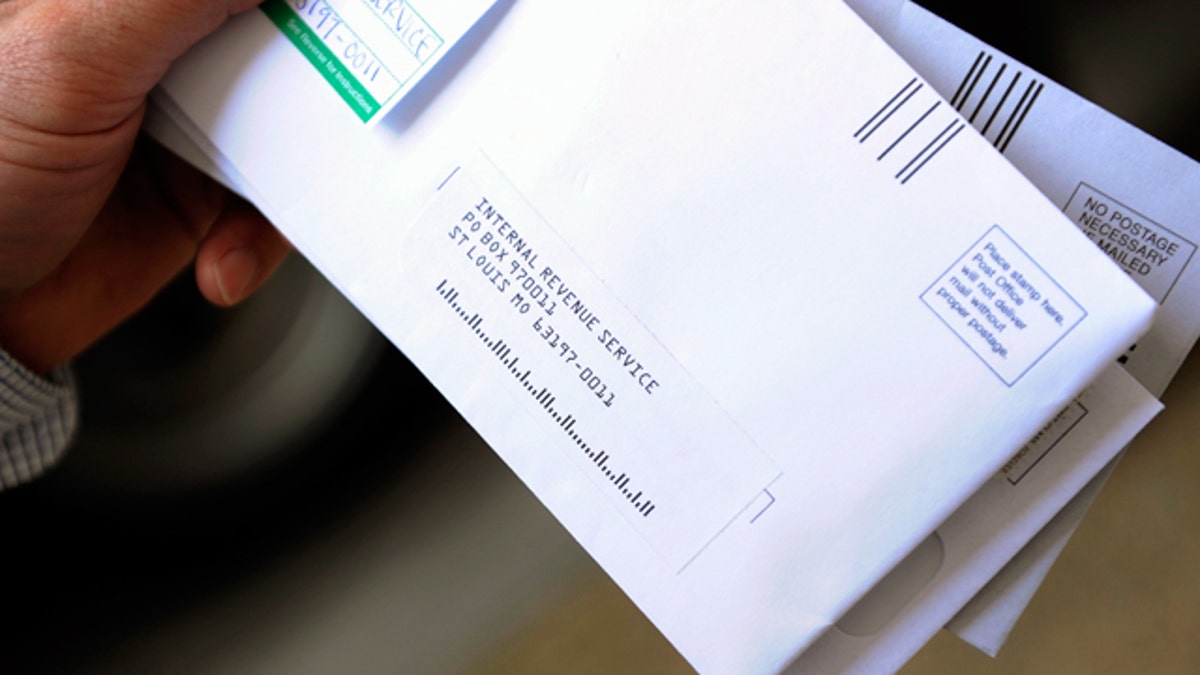
(Reuters)
Tax-exempt charities have their work cut out for them in 2013.
A record 46.2 million people now live in poverty, gas prices hit an all-time annual average $3.60 a gallon, food stamp enrollment is at 47.7 million (with an annual cost of over $74 billion) for the first time in U.S. history, and a record 88.9 million Americans are no longer in the labor force.
Suffice it to say that charities, already buckling under the economic weight of the last four years, face tough sledding ahead as they struggle to secure financial gifts from donors with dwindling resources.
With so many Americans fighting to stay afloat economically, one might think the Obama administration would be inclined to support, not thwart, the work charities perform. But consider this startling finding from the Government Accountability Institute: under Mr. Obama, IRS audits for tax-exempt organizations have jumped 79% over what they were under President George W. Bush.
[pullquote]
According to Internal Revenue Service data, the IRS audited an average of 6,205 returns of tax-exempt organizations per year from 2001 to 2008. From 2009 to 2011, however, the number of audited returns spiked to an average of 11,111 per year.
This finding is even more surprising when one considers that fewer tax-exempt organizations have filed IRS returns under Mr. Obama than did under Mr. Bush. From 2009 to 2011, the IRS received an average of 819,417 tax returns per year. Yet from 2001 to 2008, tax-exempt organizations filed a larger average of 847,898 returns per year.
What's going on here? Why is the Obama administration draining precious resources and time from charitable organizations to lawyer up and endure the long, hard slog of an IRS audit? [Full disclosure: I am the president of an organization currently under IRS consideration for 501 (c)(3) status.]
One thing is for sure: the IRS's motivation isn't money. After all, audits of tax-exempt groups don't yield big revenues, if any.
Indeed, the IRS under Mr. Obama seems to have developed a penchant for poaching low yield auditing fruit. For example, for every hour the IRS spends interrogating small or medium-sized businesses, it would have recouped 1,207% more than had it audited a large corporation ($702 versus $9,173). And yet from 2009 to 2011, the coverage rate (number of audits as a percentage of total returns filed) for smaller companies with assets between $10 million and $50 million increased 32 percent. In the same way, the Obama administration's decision to ratchet up IRS scrutiny of charities by placing them in the auditing crosshairs won't boost revenues. So why is it happening?
The president's supporters are likely to say that the bulk of the tax-exempt organizations undergoing audits are "front" political groups, not social welfare charities like the Salvation Army and Red Cross that feed and assist the poor. But the IRS does not itemize tax-exempt audits by type, and even if they did, the IRS has designated educational groups as charities. Period.
For the president's opponent's, the increase in charity audit rates is further evidence of a politically-driven White House that leverages power to achieve its ends. Last month, for example, the Obama administration raised ire and eyebrows when it assembled a group of charitable officials at the White House and pressured them to support President Obama's proposed tax hikes -- or else.
"What the White House did today is disturbingly reminiscent of how it conducted itself during congressional consideration of ObamaCare --telling groups that they better back the White House, or else," said Rep. Dave Camp (R-Mich.) and Sen. Orrin Hatch (R-Utah) in a joint statement. "Bullying isn't leading. These kind of intimidation tactics are unacceptable, and they need to stop now."
The newly passed bill to avert the fiscal cliff threatens to further strain charities by reducing the value of tax deductions donors may make.
Whatever the White House's motivation for honing in on tax-exempt organizations, boosting IRS audit rates of charities by 79% at a time when they are already struggling to secure scarce resources to serve their missions seems, at minimum, a gross misallocation of time, energy, and taxpayer dollars. At worst, it is further evidence of a White House determined to flex its political muscle to keep organizations dependent and fearful.
Either way, it needs to stop.








































